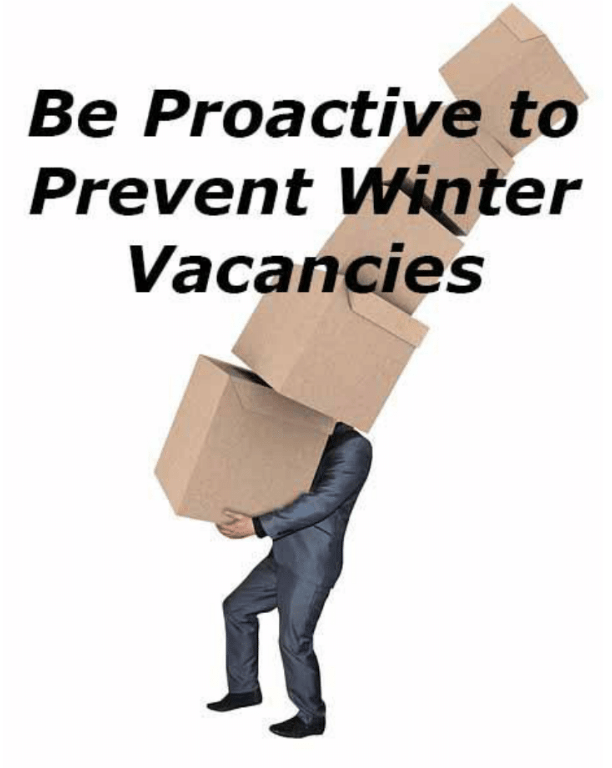Extend your occupancy dates
This is the easiest one to have control over. When a tenant moves into your unit from November to March, consider offering an 18-month lease instead of 12. This puts a November tenant on a moving schedule of June 1, if they don’t renew. Could you offer a small discount for them choosing an extended lease? It may seem silly to lose money on a monthly basis. But a discount is cheaper than having to turn over a unit in the winter. A discount is also cheaper than heating an empty apartment for months.
Shorten your lease period
This might be a little riskier as you’ll have more turnover, but you’re more likely to be full during the winter. Weigh the pros and cons before you decide to go to 6 month lease periods. If you choose to offer 6 months, try to only do so for leases starting between November and March. Keep the traditional 12 months or extended 18-month options for all other new tenants.
Offer renewal incentives
Is there something low cost to you, but would increase value for your tenant? Maybe it’s winter equipment or weatherproofing materials for inside the unit. Maybe you could offer a gas or grocery gift card for renewing with you. These small tokens might be the right incentive necessary to keep your tenant renting from you. You should start these conversations a few months in advance. This keeps the tenants happy and you aware of their plans.
Talk to your tenants
Ask your tenants what would help them. Having a conversation with your tenants about what they’d like to see, would help you and build trust. Treating your tenants with respect will show them you care and they’ll be respectful in return.
Start new leasing policies with any new tenants from November to March. This can help keep your rentals full during the winter months. If you have a question or would like to implement an alternative lease agreement fill out our contact form at contact us or call Day Property Management at 920-968-0626 to start today.




